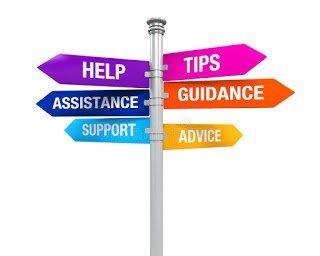Table of Contents
ToggleTypes Of Addiction And Their Treatments
It refers to compulsive behaviors that are repeated despite the negative consequences. Some examples include gambling, sex, shopping, and internet use disorder.
It refers to an excessive preoccupation or dependence on a specific behavior or activity, such as exercise, eating, or work, which can disrupt a person’s life. Examples include food or exercise addiction and workaholism.
It refers to drugs, alcohol, or other substances that alter the brain’s chemistry and lead to physical and psychological dependence. Examples include alcohol, opioids, cocaine, and nicotine.
How To Overcome Addiction?
There is no one-size-fits-all solution for overcoming it, however here are some suggested common strategies to help someone treat it :
Professional Treatment :
This may include therapy, counselling, and medication. The first step is taking action immediately.
12-Step Facilitation Therapy :
This is a type of behavioral therapy that encourages and helps individuals engage in the 12-Step program of recovery, initially developed by Alcoholics Anonymous (AA). The treatment is based on the disease model of addiction. According to 12-Step Facilitation Therapy, addiction is a chronic disease that requires ongoing support and management. Combined with other therapies, 12-Step Facilitation Therapy can help clients get clean and sober. The success of 12-step treatment depends on an individual’s willingness to engage and follow through with each step actively.
Therapy :
It involves working with a therapist or counsellor to understand the 12 steps of recovery and how they can be practically applied to an individual’s life. The goal is to help individuals develop a greater understanding of the program and to provide support and guidance as they work through each step. Therapy may involve discussions on spiritual and psychological principles; moreover, therapy also helps the clients learn how to maintain sobriety and build a support network.

Healthy Lifestyle Changes :
This may include regular exercise, good nutrition, adequate sleep, stress management, avoiding triggers and establishing healthy relationships with people who are not using substances.
Cognitive-Behavioral Therapy (CBT):
Cognitive-Behavioral Therapy (CBT) is a widely practiced form of psychotherapy that examines the interconnectedness of thoughts, feelings, and behaviors. It operates on the premise that thoughts and beliefs significantly influence emotions and behaviors, and by identifying and challenging negative thought patterns, individuals can bring about changes in their emotional responses and behaviors.
The fundamental principles and techniques of Cognitive-Behavioral Therapy encompass:
Cognitive Restructuring: This involves the identification and challenge of distorted or irrational thoughts and beliefs. Clients are taught to recognize and reframe negative thinking patterns, fostering more realistic and balanced thinking.
Behavioral Activation: This approach encourages individuals to engage in activities that provide pleasure or a sense of accomplishment. It aims to counteract the negative impact of withdrawal and inactivity often associated with mood disorders.
Exposure Therapy: Particularly utilized in the treatment of anxiety disorders, exposure therapy gradually exposes individuals to feared situations or stimuli, reducing anxiety over time. This helps individuals learn that their feared outcomes are unlikely or manageable.
Problem-Solving: CBT often involves developing practical skills for identifying and solving problems. Clients learn to break down larger issues into manageable components and develop strategies to address them.
Homework Assignments: CBT commonly includes assignments for clients to complete between sessions. These assignments may involve keeping a thought journal, practicing new skills, or applying learned techniques to real-life situations.
Mindfulness Techniques: Some CBT approaches incorporate mindfulness and relaxation techniques to help individuals stay present in the moment and manage stress.
CBT is an evidence-based therapeutic approach proven effective for various mental health conditions such as anxiety disorders, depression, post-traumatic stress disorder (PTSD), obsessive-compulsive disorder (OCD), and others. It is typically a short-term, goal-oriented therapy that equips individuals with practical tools and strategies to manage their thoughts and behaviors.
It’s crucial to emphasize that while CBT is effective for many individuals, therapy preferences and needs can differ. Consulting with a mental health professional is recommended to determine the most appropriate approach for a specific individual.
Medications :
Proper medications are available to help with it, such as methadone for opioid addiction, naltrexone for alcohol addiction, and bupropion for smoking cessation.
Mindfulness and Relaxation Techniques :
Such techniques include meditation, yoga, and deep breathing. They help to reduce stress and cravings.
It is important to note that overcoming addiction is a journey; Recovery852 can guide you or a significant other on the recovery path. We have helped people in Hong Kong overcome their addictive behaviors. Contact Grant at Recovery852 for a confidential and private consultation and assessment.
- Different Types of Addiction
- Support Network In Recovery From Addiction
- Effective Treatment for Addictive Behaviours
- Cognitive Behavioural Therapy For Addiction
- Setting Realistic And Reachable Wellness Goals In Recovery
- How Addiction Affects Families
- Sober Curious: A Movement For Change
- The Five Rules Of Recovery
- What Is Acceptance and Commitment Therapy?
- Mental Health 102: Understanding Depression
- Unpacking Wine Mom Culture
- The Dangers of Addiction Replacement
- Nurtured By Nature: Nature In Addiction Recovery
- The 12 Steps For Atheists
- A Deeper Look Into Dual Diagnosis
- Financial Wellness in Addiction Recovery
- How Does Stress Affect Addiction?
- Mental Health 101: Understanding Anxiety Disorders
- Talking About Marijuana Use Disorder
- Yoga Practices in Addiction Recovery


